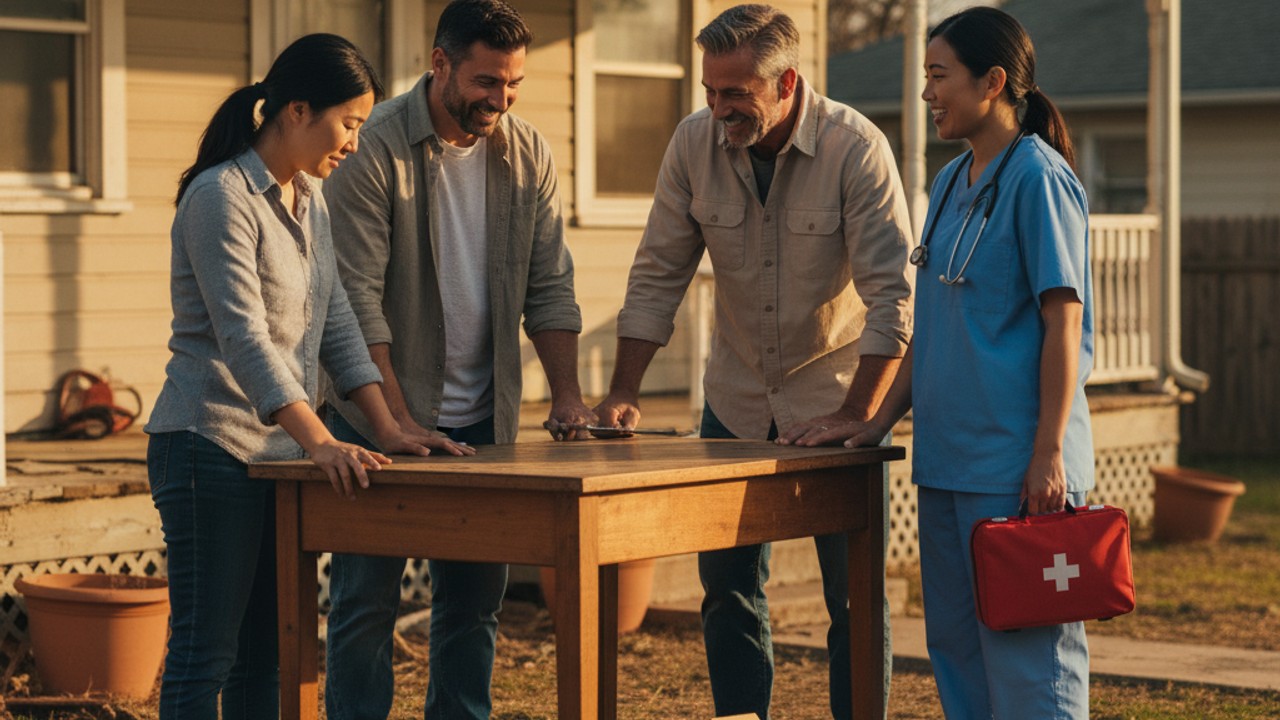When the storm surged through Clara's neighborhood last year, the water took her roof, her kitchen table, and the tiny grocery receipts that proved she had once had enough. She is one of millions whose lives are rearranged overnight by disaster, conflict, or long-term economic strain — but Clara's story is not only loss; it is also the beginning of community-led recovery.
Why this moment matters
Forced displacement, gaps in healthcare, and rising food insecurity are converging into one human crisis. According to UNHCR, forced displacement has reached record levels, leaving tens of millions needing safe shelter and long-term housing solutions. See the UNHCR Global Trends report for the latest figures: UNHCR Global Trends 2023.
At the same time, the World Health Organization reports that at least half the world's population still lacks full coverage of essential health services, a gap that becomes life-threatening during crises: WHO on Universal Health Coverage.
Food banks and community pantries are stretched thin. In the United States, organizations such as Feeding America document persistent food insecurity even as supply chains stabilize; millions rely on charity and local programs to fill the gap. Learn more at Feeding America: Feeding America.
People and organizations making a difference
Across cities and disaster zones, nonprofits and local groups move quickly from crisis intervention to sustainable recovery. Examples include:
- Habitat for Humanity which rebuilds homes and advocates for affordable housing policies: habitat.org
- Doctors Without Borders (MSF) which provides emergency medical care where health systems collapse: msf.org
- Feeding America networks that deliver food assistance and partner with local programs to reach families in need: feedingamerica.org
"In disaster response, a warm meal, a safe place to sleep, and a trusted nurse or doctor can be the difference between despair and recovery." — Field worker, community response team
How you can help, right now
People move from being overwhelmed to being helpers. Small actions scale. Here are concrete ways to turn empathy into impact:
- Donate to local and international organizations actively responding: Habitat for Humanity, Feeding America, Doctors Without Borders.
- Volunteer or organize collection drives for clothing, hygiene kits, and nonperishable food in your community.
- Advocate for policy change: contact local representatives to push for expanded housing assistance and universal access to essential health services (see WHO guidance on UHC for policy context: WHO UHC).
- Support crisis-intervention hotlines and mental health services; recovery begins with safety and dignity.
Clara rebuilt her life with the help of neighbors, clinicians who provided free care, and volunteers who repaired her home. Her recovery was imperfect but real. In the same way, when we combine shelter, food, healthcare, and targeted crisis response, entire communities regain momentum.
There is reason for hope: effective models exist, from rapid emergency shelters to community health outreach, and your action makes these models possible. If you can, give a few hours, a modest donation, or your voice to demand humane policy. Clara's table is being repaired; the next one could be in your community.
To learn more and take immediate action, visit the organizations linked above and consider joining local coalitions focused on housing assistance, food security, healthcare access, rehabilitation, and crisis intervention. Small, steady steps rebuild homes and human dignity.







